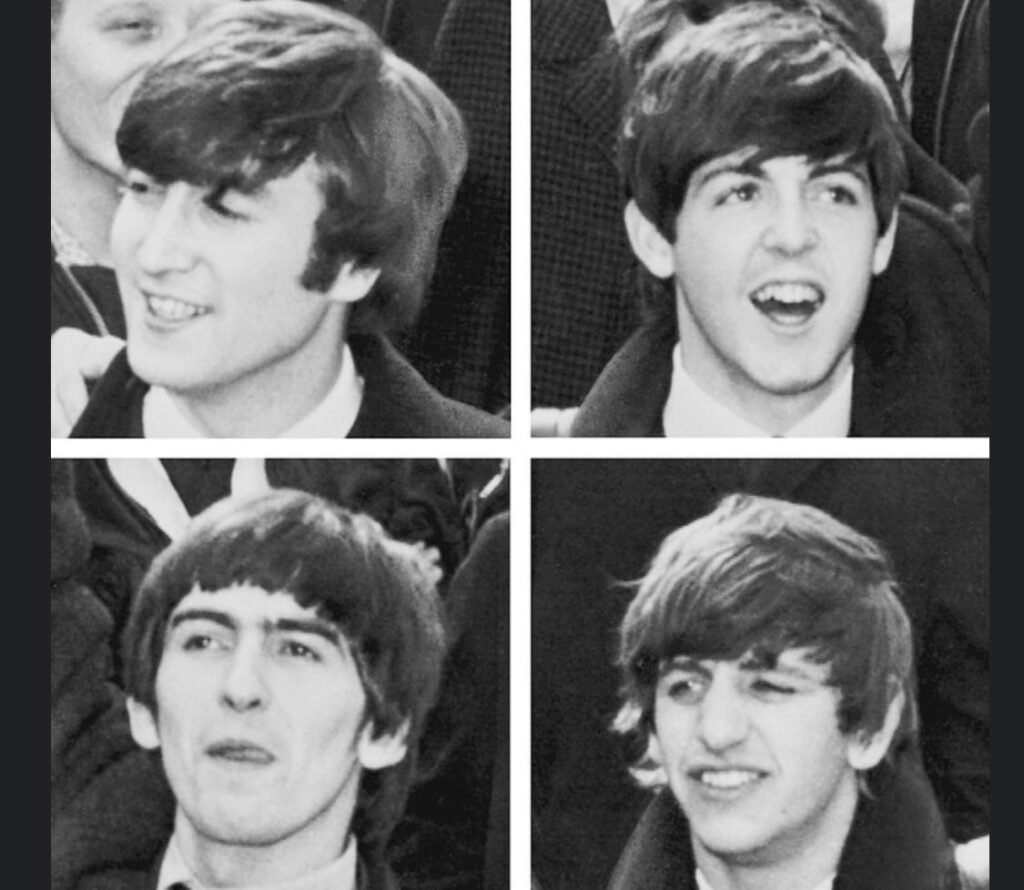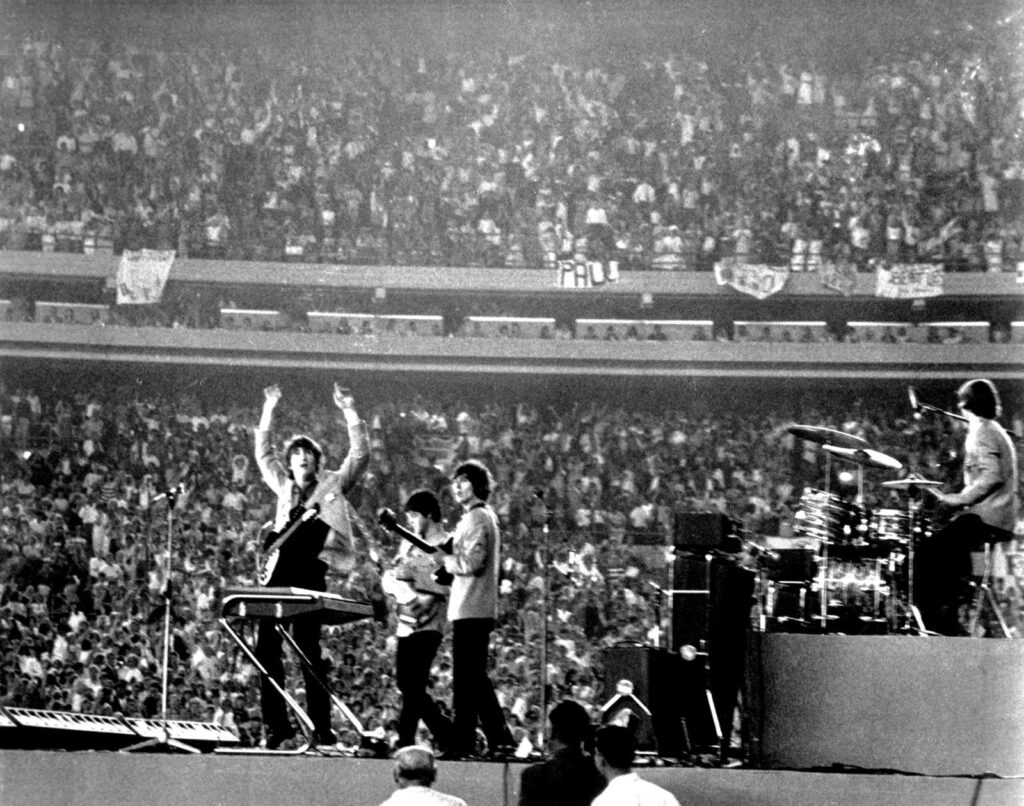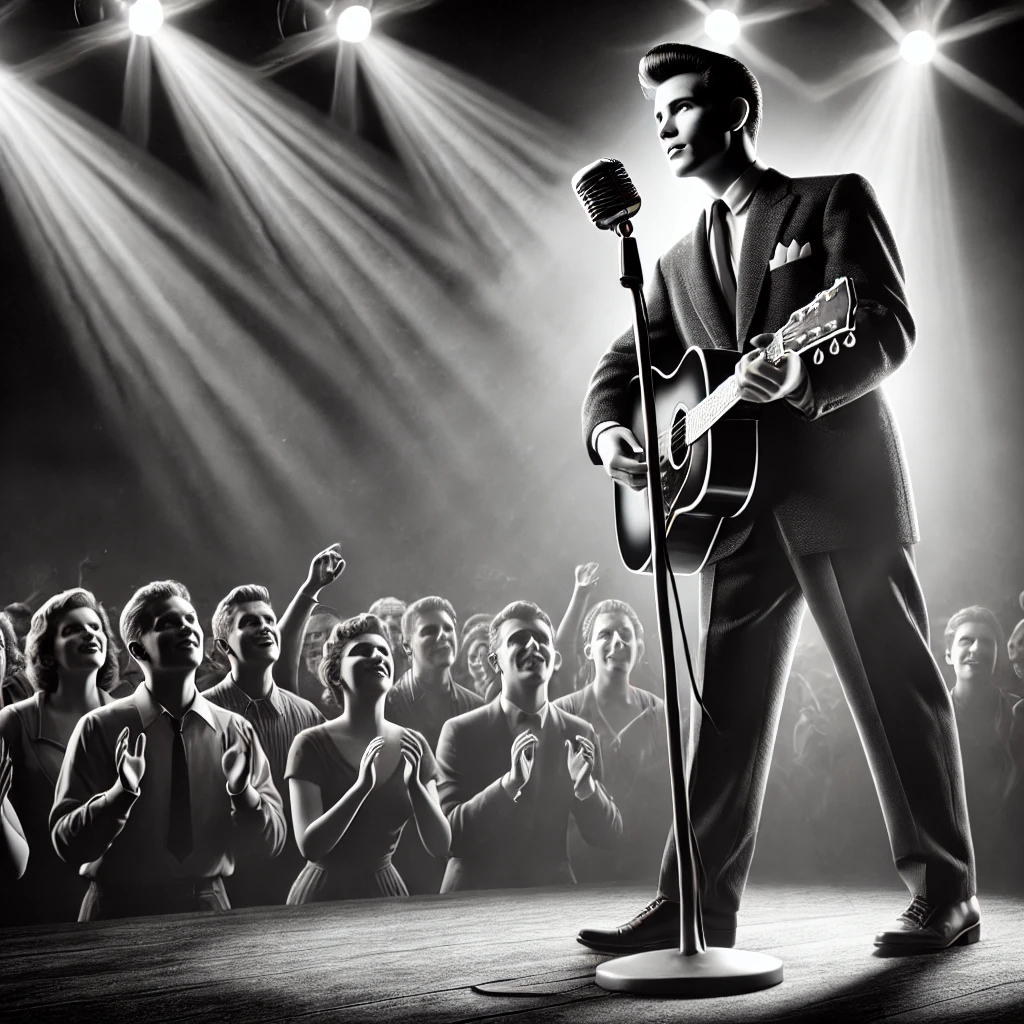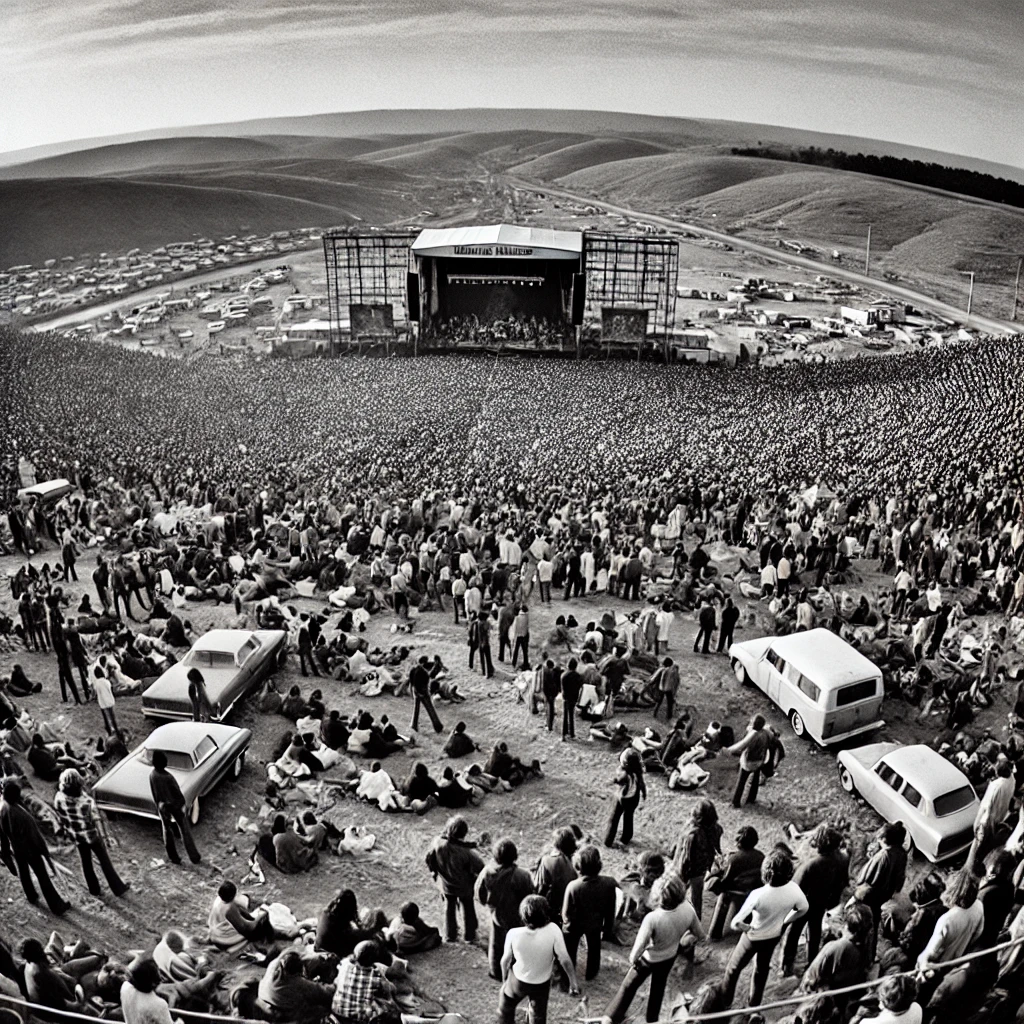When The Beatles took the stage at Shea Stadium on August 15, 1965, they weren’t just making music history—they were revolutionizing the live concert experience. This groundbreaking performance marked the dawn of the stadium concert era, setting a new standard for how live music would be experienced by massive audiences. But what made this particular concert so special? Let’s take a closer look at the night when The Beatles transformed music forever.
The Beatles’ Global Fame
By 1965, The Beatles were global superstars, riding the wave of “Beatlemania” that had taken over the world. Their infectious energy, catchy tunes, and rebellious charm captured the hearts of millions. However, while they had played to huge crowds before, nothing prepared them—or the world—for what was about to happen at Shea Stadium.

The Shea Stadium Concert: A Game-Changer
The concert at Shea Stadium in New York City was a pivotal moment not just for The Beatles, but for live music in general. With over 55,000 fans packed into the stadium, it was the largest audience the band had ever performed for, and it set a precedent for future stadium shows. Before this, concerts were typically held in smaller venues like theaters. Shea Stadium was the first time a rock band played a major outdoor sports venue, setting a new standard for large-scale performances.
Overwhelming Crowd and Unprecedented Noise
The energy in the stadium was electric. Fans screamed so loudly that it was nearly impossible for the band to hear themselves play. The sheer volume of noise at the concert was staggering, with some describing it as a wall of sound that completely drowned out the music. Despite this, the band powered through hits like “A Hard Day’s Night,” “Help!,” and “Twist and Shout,” delivering a performance that would become the stuff of legend.
Innovations in Concert Technology
The Shea Stadium concert wasn’t just notable for its size—it also introduced several innovations that would become standard at large concerts. For the first time, powerful amplification systems were used to project the sound across the massive stadium. The Beatles also played on a rotating stage, allowing them to be seen by fans in all corners of the venue. These innovations helped pave the way for future stadium concerts, setting new expectations for both artists and audiences.
The Challenges of Performing in a Stadium
Despite the concert’s historic significance, it wasn’t without its challenges. The sheer size of the stadium and the deafening screams of the fans made it difficult for The Beatles to perform as they normally would. Communication between the band members was nearly impossible, and at times, they struggled to stay in sync with one another. However, their professionalism and charm carried them through, and the crowd was too ecstatic to notice any hiccups.


The Beginning of Stadium Concert Culture
The Beatles’ performance at Shea Stadium is often seen as the birth of the modern stadium concert. It set the stage for bands and artists to think bigger and bolder when planning their live performances. In the years that followed, stadium concerts became the norm for major acts, with artists like The Rolling Stones, U2, and Bruce Springsteen regularly filling massive venues. Without The Beatles at Shea, the landscape of live music would look very different today.
A Lasting Legacy
The Shea Stadium concert remains one of the most iconic moments in music history. It was immortalized in The Beatles’ documentary film The Beatles at Shea Stadium, giving fans a chance to relive the magic. The performance cemented The Beatles’ status as global icons and pioneers of the stadium concert experience. Even today, the influence of that night can be felt at every major stadium show, from Taylor Swift to Coldplay.
Conclusion: Why The Beatles at Shea Stadium Matters
The Beatles’ 1965 concert at Shea Stadium wasn’t just a concert—it was a cultural milestone that changed how we experience live music. By bringing rock and roll to the masses on a scale never before seen, they ushered in the era of stadium concerts and forever altered the music industry. The legacy of that night still resonates, reminding us that sometimes, music really can change the world.
Sources:


